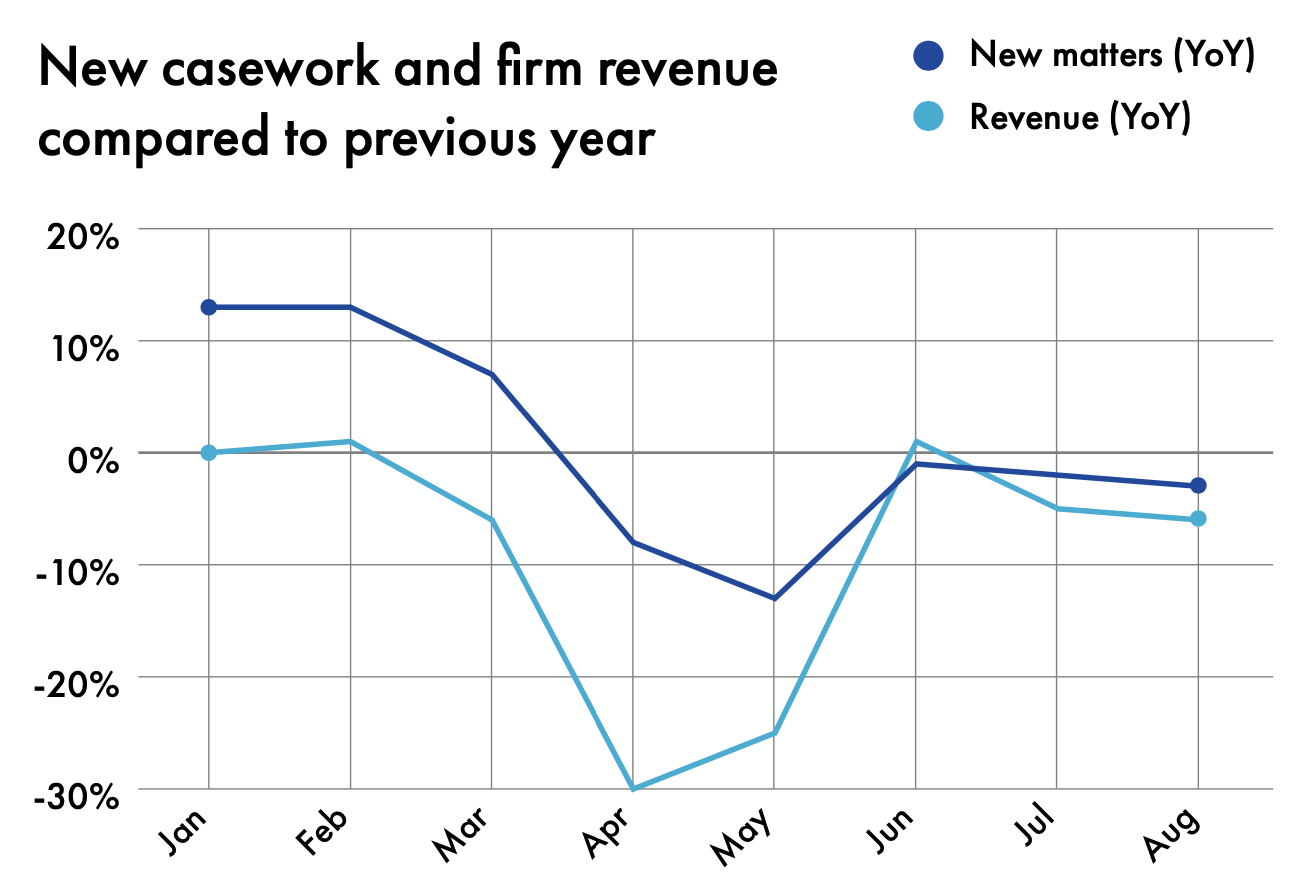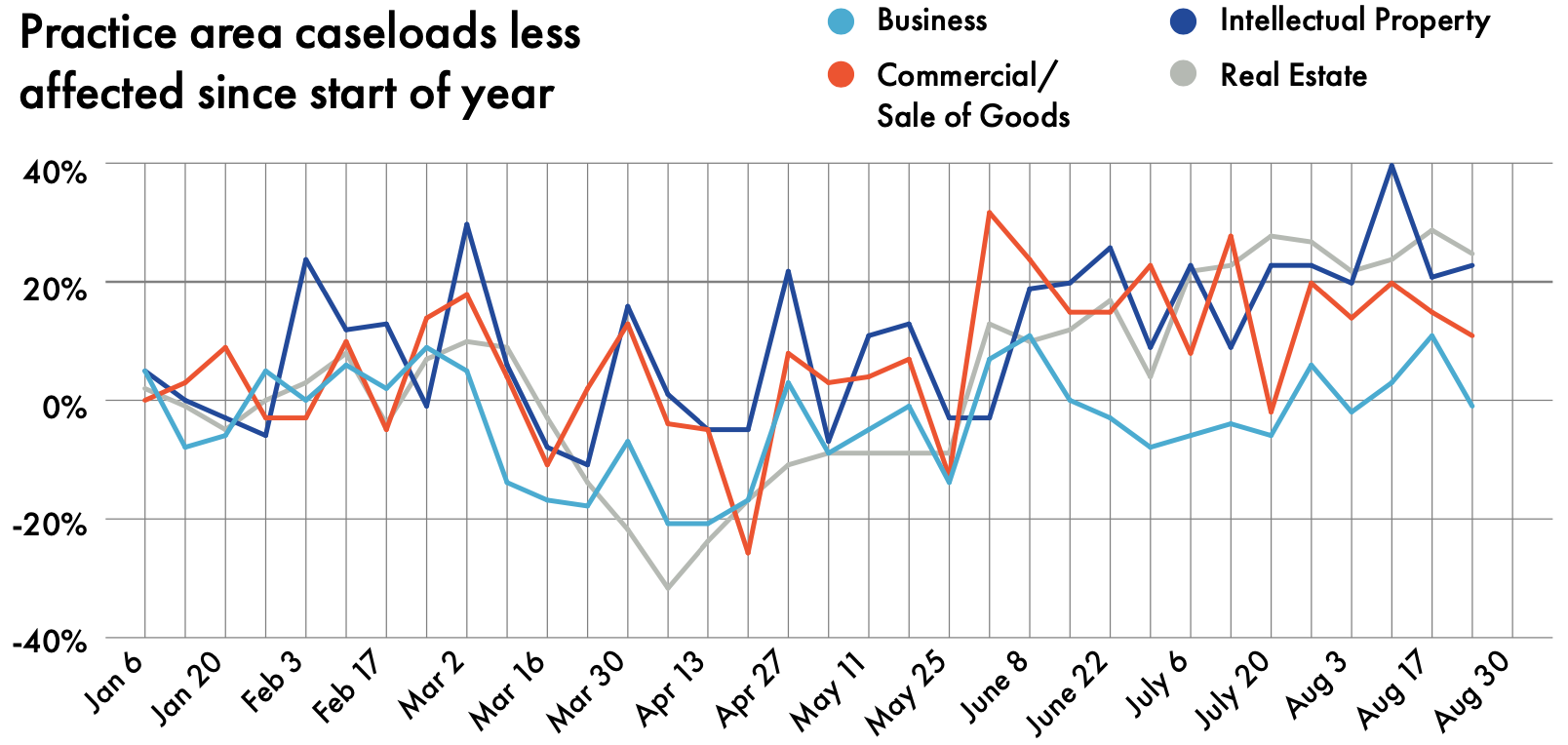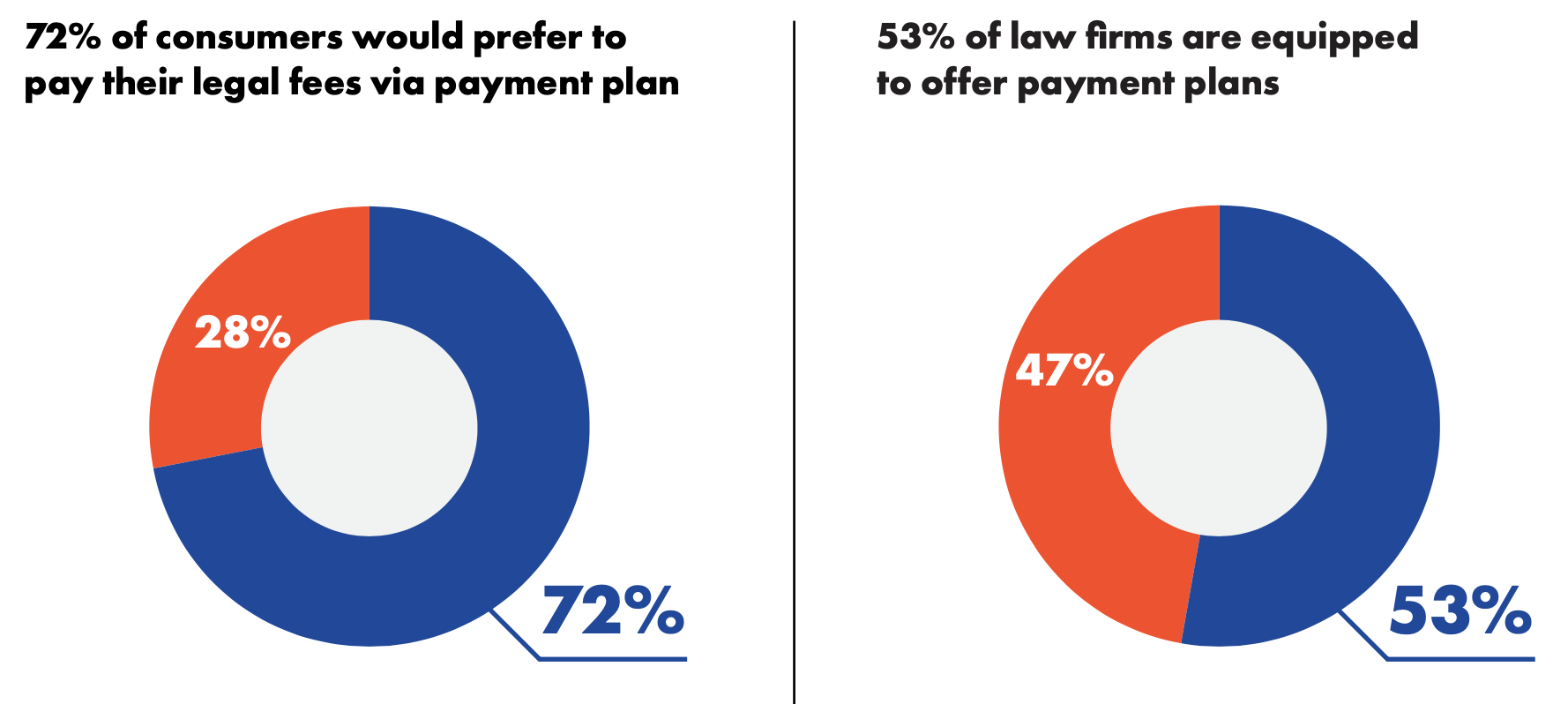2020 Clio Legal Trends Report Confirms Profession's Resilience
The year has hit lawyers hard, but they've kept going.
 It’s safe to say that no lawyer has weathered 2020 professionally unscathed. Even the Biglaw firms positioned to offer handsome Fall bonuses took a hit and it’s a testament to how gangbusters this year could have been that they’re still going to come out ahead.
It’s safe to say that no lawyer has weathered 2020 professionally unscathed. Even the Biglaw firms positioned to offer handsome Fall bonuses took a hit and it’s a testament to how gangbusters this year could have been that they’re still going to come out ahead.
The annual Clio Cloud Conference kicks off today, which means we got our first look at one of the legal industry’s most important benchmarking tools, their Legal Trends Report, compiled using data gathered from the Clio platform. With Clio’s extensive user base, it’s hard to imagine a more comprehensive sampling of the legal community outside the rarefied air of Biglaw.
There’s a wealth of information in this year’s report, especially when it comes to technological adoption, but let’s face it: the most salient takeaway in a year like 2020 is the overall health of the industry. We checked in with CEO Jack Newton back in June when Clio’s data first suggested that the legal profession might be turning the corner. While the June highs may have receded a bit, it does appear as though matters have stabilized.

Generative AI In Legal Work — What’s Fact And What’s Fiction?


No one wants to see revenue take a hit, but if firms can come out of this year having taken a bath from March to May, but holding steady at less than a 10 percent shortfall going forward, I think everyone would take it. There were days in mid-April where we wondered if we’d see wholesale firm bankruptcies. By and large, firms have managed to scrape by.
That said, the report doesn’t hide that attorneys are still concerned, even if they are less worried than they were at the height of the pandemic-induced slowdown.

Sponsored

The Business Case For AI At Your Law Firm


Generative AI In Legal Work — What’s Fact And What’s Fiction?


Is The Future Of Law Distributed? Lessons From The Tech Adoption Curve

Navigating Financial Success by Avoiding Common Pitfalls and Maximizing Firm Performance
Over half of respondents are still worried about their firm, but more importantly, more than a third are worried about making a living period. When you throw in the unnecessarily high debt loads that young lawyers carry, the prospect of not being able to make a living at all is tragic.
While some practice areas took hits — like traffic infraction work when no one was driving anywhere — there were some practices that enjoyed fairly steady results throughout the year:

Nothing can stop IP from printing money these days, which probably should raise alarms at the legislative level, but it won’t so we’ll just move on.
Trying to read the tea leaves of what practice areas held up might just come down to what practice areas clients don’t think they can avoid. You can’t buy the house without the real estate attorney, but you might think you can handle that more mundane matter on your own. Bringing clients back in the door for these issues is the challenge and when it comes to that, firms need to think flexibly.

Sponsored

Navigating Financial Success by Avoiding Common Pitfalls and Maximizing Firm Performance

Legal AI: 3 Steps Law Firms Should Take Now
That’s going to be the challenge for at least the near future.
On the technology side, the report adds some hard data to back up what we’ve all heard anecdotally: the pandemic has made even the most tech-averse attorney commit to branching out.

Now, in fairness, attorneys on Clio’s radar are already a self-selecting group that aren’t terrified of technology, but these are still striking numbers.
As I said, there’s a lot more in the whole report to sift through, but for now, let’s just take solace in knowing that things are getting a little better out there.
 Joe Patrice is a senior editor at Above the Law and co-host of Thinking Like A Lawyer. Feel free to email any tips, questions, or comments. Follow him on Twitter if you’re interested in law, politics, and a healthy dose of college sports news. Joe also serves as a Managing Director at RPN Executive Search.
Joe Patrice is a senior editor at Above the Law and co-host of Thinking Like A Lawyer. Feel free to email any tips, questions, or comments. Follow him on Twitter if you’re interested in law, politics, and a healthy dose of college sports news. Joe also serves as a Managing Director at RPN Executive Search.







